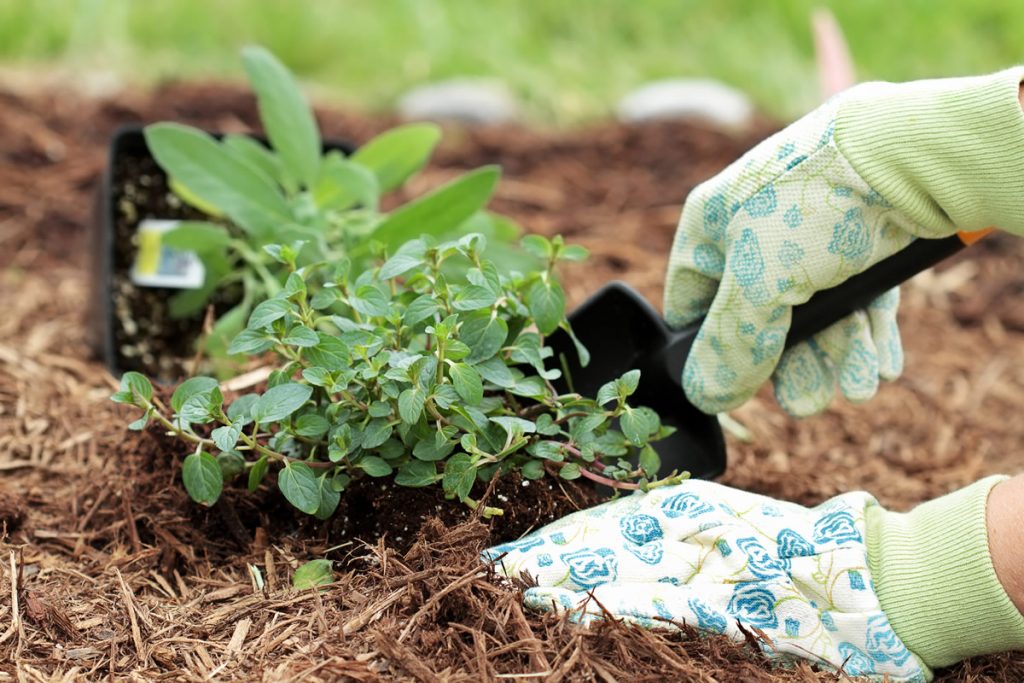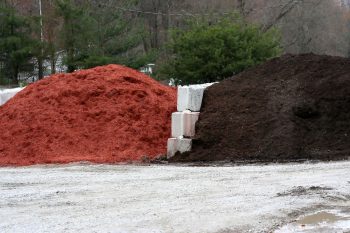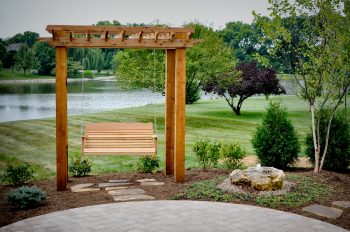
“Mulch is worth much more than you may think.”
Aside from improved aesthetics, do you know mulch actually provides a number of important benefits to your landscape?
- Reduced moisture loss;
- Reduced temperature fluctuation of the soil (cooler in the summer and warmer in the winter);
- Addition of organic matter that improves moisture and nutritional retention of soil as well as improved soil structure;
- Enhanced soil-based microorganism activity which turns decaying matter into nutrients available for plant
growth; - Enhanced soil-based microorganism activity which turns decaying matter into nutrients available for plant
growth; - Weed growth suppression;
- Reduced soil erosion.
Types of Mulch
 Mulch can be almost any material, organic (such as wood chips, straw, peat moss) or inorganic (such as stones, plastic mulch, fabrics and mats). Organic mulch provides more benefits than
Mulch can be almost any material, organic (such as wood chips, straw, peat moss) or inorganic (such as stones, plastic mulch, fabrics and mats). Organic mulch provides more benefits than
inorganic, but organic mulch decomposes and consequently it must be replenished each year.
You will find mulches that are recycled wood and wood-based products that are shredded with an added coloring agent. They may look nice in the store and right after adding them to your
landscape, but they tend to decompose faster and may contain toxic substances that you would not want to have near your garden or children’s play areas.
Mulch Application
Here are some suggestions for adding mulch:
 Don’t put it on too thick. Thick mulch will actually raise the temperature rather high as decomposition occurs drying it out more quickly and making it more susceptible to fungi which can cause the mulch to repel water.
Don’t put it on too thick. Thick mulch will actually raise the temperature rather high as decomposition occurs drying it out more quickly and making it more susceptible to fungi which can cause the mulch to repel water.
Thick mulch can also slow down water evaporation from damp soil keeping it too wet for a prolonged period which can contribute to root rot and oxygen deprivation.
Keep mulch around 1 to 3 inches thick for best results.
Water newly installed wood or bark mulch. Newly applied mulch can dry out creating conditions favorable for fungi which can cause the mulch to repel water. Applying some moisture immediately after installation helps to retain that moisture in the mulch.
Do not pile up mulch against tree trunks or plant crowns. Since mulch reduces moisture loss, placing it against plants or trees creates a favorable environment for diseases such as crown rot.
When piled around plants, it can provide an attractive hiding place for plant eating rodents.
Mulching by Primary Grounds
Primary Grounds uses McCarty Mulch & Stone of Greenwood as our mulch supplier. They manufacture and process their own hardwood mulches, fine mulches and color enhanced mulches to their specifications to control quality.
If you need assistance with mulching your landscape, look no further than our team at Primary Grounds. Our experts will assess your need, discuss options with you and professionally install your
mulch.
Reference: Mulch Basics, Pettinelli & Tamsett, Univ. of Connecticut, Cooperative Extension System Fact Sheet

